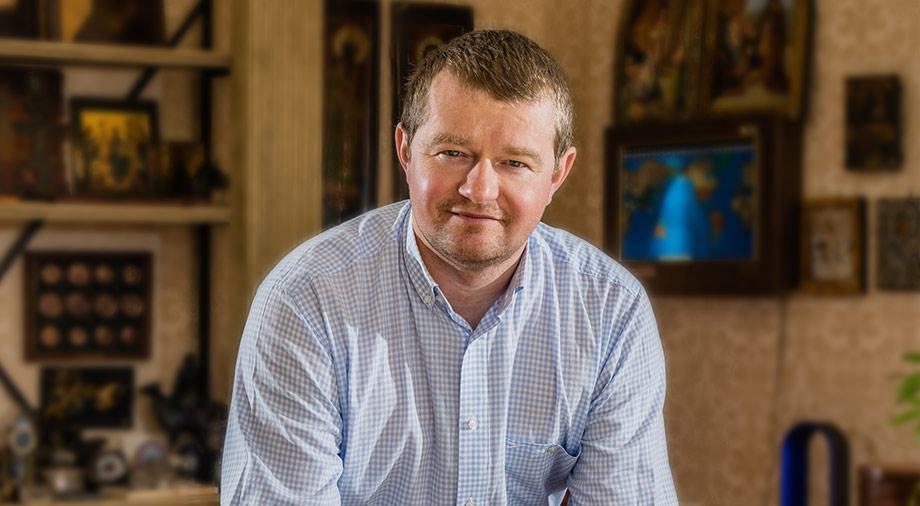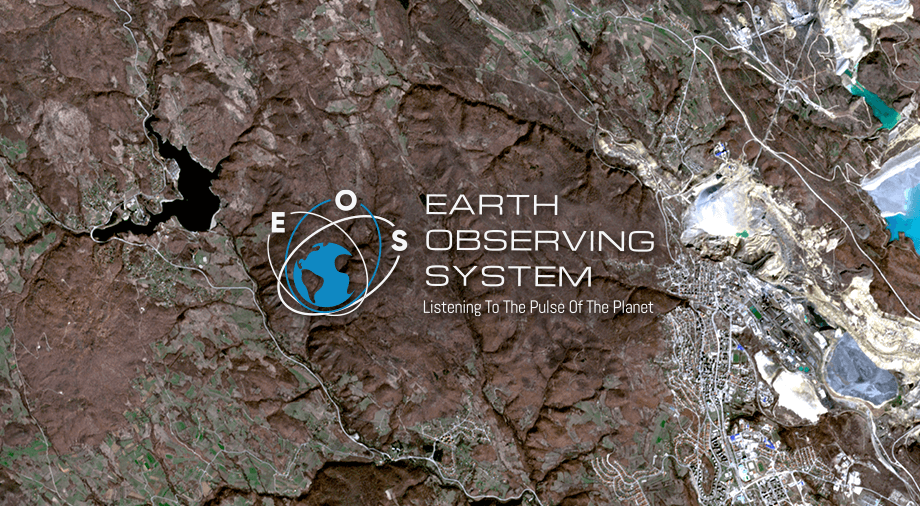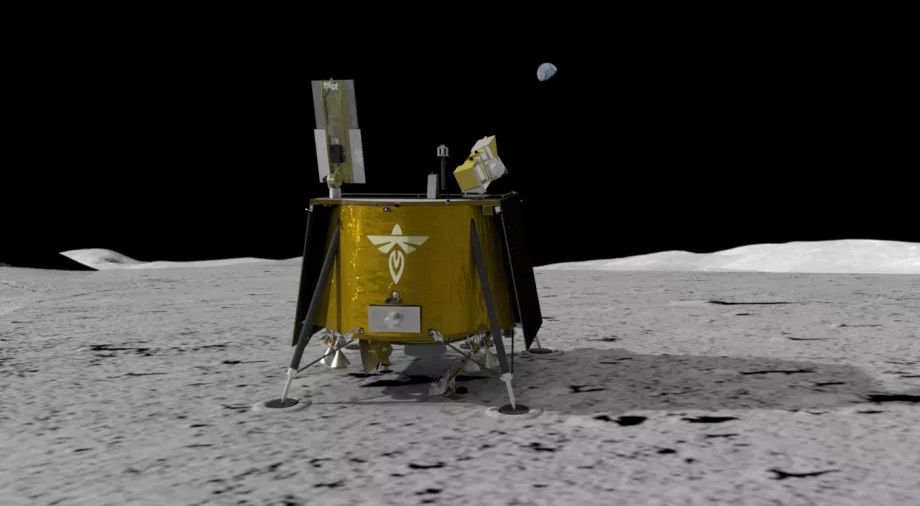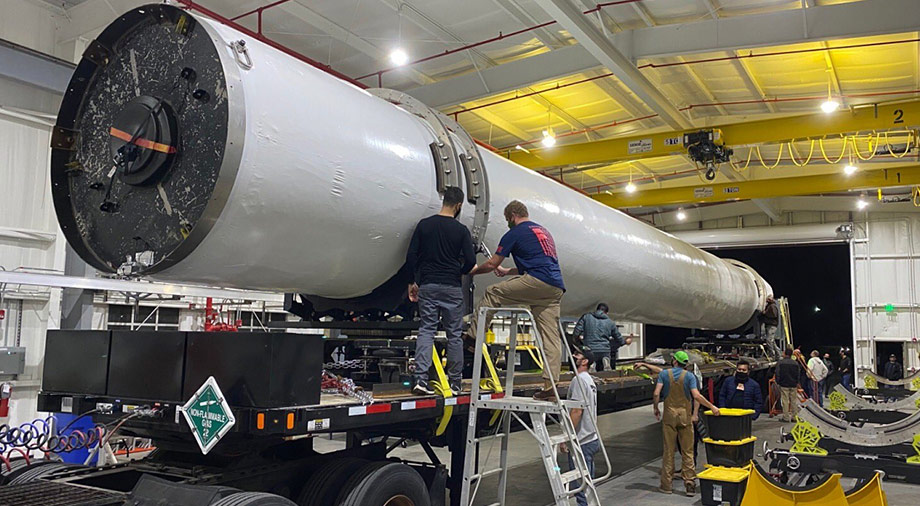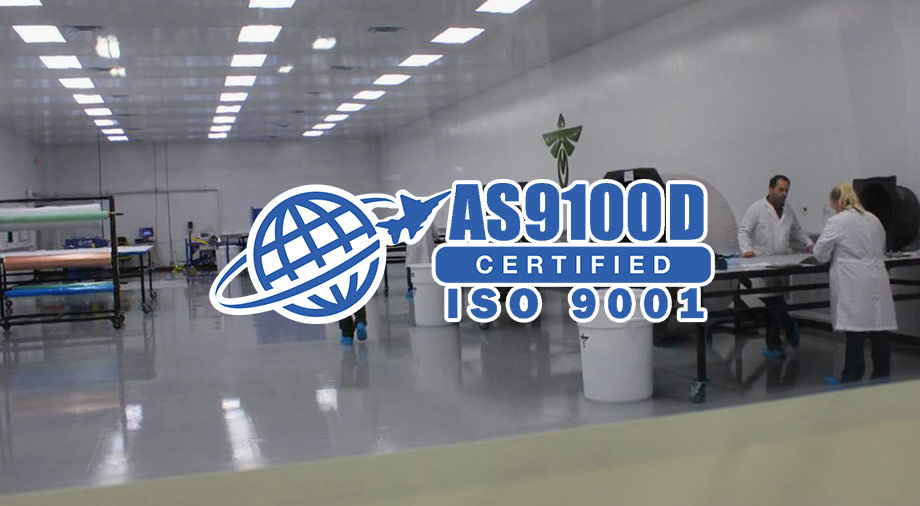Max Polyakov is in Texas, and the aspiring rocket magnate wants to do Texan things. It’s months before the coronavirus pandemic will force even the Lone Star State into a brief, reluctant lockdown, so Polyakov feels plenty comfortable driving a truck to the 5-Way Beer Barn about 50 miles north of downtown Austin. “Look at that! Look at that! Look at that!” he exclaims in a thick Slavic accent as the red storehouse comes into view. “We’ve come at the right time for the Beer Barn!” There, he can pull up, roll down the window, and get suds, harder booze, or a hay bale plopped into his vehicle by a friendly person who starts the conversation with “What y’all need today?”
Drive-through service isn’t what Polyakov is after. Inside the barn, more or less an open warehouse with towers of inventory, the 43-year-old appears to savor all the little things he doesn’t see in his native Ukraine. His eyes flit from the chewing tobacco to the beef jerky. He marvels at the corn feed for deer. He’s even excited to use a credit card instead of cash in this rural setting. “Culture is culture!” he says on the drive out, 24-beer variety pack in hand.
This fish-out-of-water routine is fun, but Polyakov is someone the emerging commercial spaceflight industry needs to take seriously. To date, he’s put $150 million of his own money into rocketry, more than anyone besides Elon Musk, with SpaceX, and Jeff Bezos, with Blue Origin. Polyakov’s company, Firefly Aerospace Inc., runs a vast engine test site about a half-mile from the beer barn. From offices in nearby Cedar Park, Firefly executives have put the company in the mix for a series of contracts to launch satellites into orbit for NASA, the U.S. Department of Defense, and a string of commercial satellite companies.
In a move that would have been unthinkable in Polyakov’s formative years, during the twilight of the Cold War, he’s shifted some of Firefly’s engineering research and development to Ukraine, once the heart of the Soviet Union’s rocket program. This two-step is a big part of his pitch for Firefly—marrying the best of the former Eastern Bloc’s aerospace space talent with the latest American intellectual property, which he promises will be duly protected from foreign interests. (Polyakov spends most of his time in Silicon Valley.) The company’s 300-employee staff is working to launch Alpha, its first rocket, into low Earth orbit later this year from a pad at Vandenberg Air Force Base in Southern California.
At 95 feet tall with a cargo capacity of roughly 2,000 pounds, Alpha is aimed at an untapped niche of the spaceflight business. New Zealand’s Rocket Lab has corralled most of the contracts for small launches of 650 pounds or less with research bodies and satellite startups, while SpaceX and Blue Origin typically compete against government programs to carry jumbo payloads of 18,000 pounds or more. If it works, Firefly’s rocket could be an ideal middle option for satellite makers of all sizes, the equivalent of a minivan for clients that wouldn’t be as well served by either a sedan or a big honking bus. Firefly also has plans for a bigger rocket called Beta, as well as for its own satellites, propulsion systems, a reusable spaceplane, and a lunar lander.
First, though, Firefly will have to prove that its rockets can work — Alpha’s maiden voyage, most recently slated for early September, has slipped to November or December — and resolve some lingering questions about its owner. Ukraine may be an ally of the U.S., but the country remains rife with organized crime and whispers of espionage. Even some of Firefly’s own staffers have voiced concerns about how far they can trust Polyakov’s promises to protect American IP. Not helping matters is the provenance of Polyakov’s wealth. His ventures over the years have included dating sites long dogged by allegations of scamminess, another reason to be skeptical when contracting his space company to build what is essentially a missile.
Polyakov dismisses these nested national-security concerns as xenophobia, a barrier to entry thrown up by rocketry competitors. “Your passion can drive you forward wherever you were born,” he says. In three to five years, “we will be at the right time, at the right place, with a product that eats the market.”
As someone who’s spent about a decade covering the rocket industry, I’ve heard a lot of rivals and space officials slag off Polyakov as a dodgy foreigner with no real chance in the new space race, but the insinuations about espionage have yet to rise above the level of innuendo. So far, the sniping sounds pretty similar to the early criticism leveled at Musk, a figure the old-school space industry viewed with deep suspicion for years. Like Musk, who flew American astronauts to the International Space Station this summer, Polyakov appears to be a space nerd willing to wager his fortune that he’s figured out something other people have missed. Unlike Musk, he has yet to show he can build a viable business in orbit.
It’s unclear exactly how much money Polyakov has. He refuses to say, and there are no reliable estimates to draw on, though the combined value of the businesses he either runs or has invested in tops $1 billion. He’s slightly above average in height and build, but extraordinary when it comes to conversational energy. His mouth can’t quite keep up with the flurry of activity taking place in his brain, and the accented words shoot out in a jet stream of business-speak like “eat the market”—sometimes ambitious, sometimes joyful, sometimes hyperbolic. It took me a couple meetings and clinical study of some transcripts to reach a working proficiency in Polyakovese and to figure out what it means when he says, for example, that his businesses are in “full attack.”
After spending most of his 20s as a student, Polyakov created a string of successful gaming, dating, and advertising websites, along with a software outsourcing company and a series of business software makers. Some of these ventures went public, such as dating service Cupid plc. Others have been acquired by the likes of Oracle and Blackstone in deals worth hundreds of millions of dollars. Polyakov says the businesses he presently has a hand in employ more than 4,000 people in Ukraine, plus an additional 450 overseas.
The dating sites, in particular, don’t look great. During the 15 years from Cupid to the present, customers and outside investigators have repeatedly said that the sites Polyakov created lure paid subscribers with phony profiles of attractive users that hover just behind a paywall, then make it very, very difficult to cancel those auto-renewing paid memberships, which can run $25 a month. Some of the sites could be considered tasteful for the genre; others, such as Shag Together, less so. “All of my businesses and investments operate within the law and, where applicable, disclose their terms of use,” Polyakov says. “My focus is on space.”
Firefly isn’t among the businesses Polyakov founded, but by the time he took over, the spaceflight company, then called Firefly Space Systems, had its own problems. Chief Executive Officer Tom Markusic managed to secure the first of Firefly’s NASA and Pentagon contracts just a year after its 2014 founding, having run successful tests of its engines in Texas. By that time, though, Virgin Galactic had sued the company, accusing Markusic of stealing propulsion technology and other key intellectual property. (Markusic previously worked at Virgin, as well as at SpaceX, Blue Origin, and NASA.) By April 2017, a protracted legal battle and the
Brexit-related departure of a key investor drove Firefly into bankruptcy, after the company had burned through $30 million.
Markusic, a religious man who believes he was put on Earth by divine providence to help humanity expand throughout the universe, prayed. Shortly thereafter, Polyakov acquired Firefly’s assets at auction for a few million dollars and rehired some employees, including Markusic, whom he reinstalled as CEO. (Firefly eventually settled the lawsuit with Virgin for undisclosed terms.) “I think it was practically a friggin’ miracle,” Markusic says.
In 2018, the year after Polyakov bought Firefly, I went with him to Dnipro, the heart of the company’s Ukrainian operation. Home to about a million people, the city sits in the central-eastern part of Ukraine and rests against the Dnieper River. Dnipro has its charms: peaceful parks, weekend markets, resorts near the water. The overall vibe, though, is undeniably Soviet. The facades of boxy buildings put up decades ago have started to crumble, and many of the public spaces suffer from similar neglect.
The Soviet Union began to turn Dnipro into one of its industrial crown jewels in the early 1950s. A former car plant was retooled into a maker of intercontinental ballistic missiles and then also passenger and cargo rockets. At the local space museum, in its dark, cavernous, cobwebbed glory, a nice older man says that by the end of the ’50s, the factory was making hundreds of ICBMs a year, the fastest rate of production in the world. He also notes Dnipro’s success at making satellites and rockets, including the Zenit, which industry types that include Elon Musk consider one of the best ever made because of its incredible engineering and futuristic design.
Polyakov grew up in the midst of this city-size rocket factory. His dad wrote operating system software for Soviet space rockets while his mom developed hardware systems meant to make the rockets reusable. By the time Polyakov had become a teenager, however, the space program wasn’t much of a career anymore. Funding, and the Ukrainian economy in general, cratered along with the Soviet Union. Polyakov’s mother quit the space program and started importing and selling flowers, while the family farmed land in the countryside to try and make ends meet. “After the Soviet Union crashed, my father received $5 a month to feed a family of four,” Polyakov recalls. “He said, ‘If I find you doing space, I will beat you.’”
In high school, Polyakov won competitions in math and physics, then scholarships. He enrolled in med school at 18 and spent six years studying to become an OB-GYN. Then, after meditating further on the low wages of doctors, he abruptly changed his mind and obtained a doctorate in international economics. During that period, he also began his software outsourcing business, becoming one of the first Ukrainians to make the country’s talented, disproportionately cheap coders available to other markets. The dating sites and the rest followed.
If you know the right people, as Polyakov does, the doors of Ukraine’s aerospace industry can open for a rare glimpse into part of the former Cold War machine, as well as Firefly’s current operations. My field trip begins on a warm, bright August afternoon, when a van pulls up at my hotel. Out pop Olga, a tall, slender woman in a tight-fitting dress and five-inch heels, and Sergey, a muscular chap in drab, black garb with a black satchel that turns out to be ubiquitous among Ukrainian bodyguards. (It holds guns.) They are my Dnipro guides and constant companions.
We travel first to the middle of a forest on the outskirts of Dnipro, the site of a decades-old rocket engine test site. A couple of guards manning a rusty gate at the entrance take a look at our passports and wave our van in. We proceed through the complex, past fuel production plants and the massive test stands at which rocket engines are held still while they’re fired, blasting great plumes of flame and smoke into a reservoir carved out among the trees. At its peak, some 1,200 people worked at the test site. That’s about five times the number we see, mostly people in their 50s, 60s, even 70s. “It was a little more fun back in the old days,” says an engineer who worked at the site for 30 years. “It used to be full of young people.”
Returning to the van, we drive closer to the city and the rocket manufacturing facility of Yuzhmash, the company in charge of many of Ukraine’s aerospace assets. At one point, it produced about two-thirds of the Soviet Union’s strategic missiles. Some razor wire rings the building’s cracking walls, and the guards are a bit sterner than those at the test site, but in we go.
In recent years, Yuzhmash has had to crank out buses and other industrial products in lieu of the war machines, but it is still making rockets. Huge engines and nosecones for Zenit and Antares rockets dot the factory floors. Some older Ukrainian women sit at elevated wooden desks off to the side of the plant, handling administrative work with posters of rockets dotting the walls behind them. We were given a tour guide on the way in, and at this point he jokes about people suspecting Ukraine of giving its rocket technology to North Korea, which I don’t think you’re supposed to do in front of a reporter. Here, too, the staff is generally gray-haired and greatly reduced from the Soviet era. Russia, which is at war with Ukraine, likes to use its own rockets of late, and Ukraine’s attempts to modernize its industry have struggled, to say the least.
The decay upsets Polyakov, who still thinks of Dnipro as the thriving hub of his childhood. In an effort to bring young people back to the city, he’s given millions of dollars to local universities to set up programs in aerospace, robotics, artificial intelligence, cybersecurity, and other engineering programs in retooled facilities with subsidized faculty. “The professors still get shit salaries,” Polyakov says. “So we are paying them.” He wants to make it easier for students to keep the rights to the intellectual property they develop while at school, create companies and find venture funding. To facilitate that, he’s brought in experts trained in the ways of places such as Stanford University.
Polyakov manages these endeavors under a philanthropic venture called Noosphere, as in a term coined by Vladimir Vernadsky, a Russo-Ukrainian scientist. Vernadsky first popularized the idea of the biosphere, the notion of grand, interlocking forces that shape the Earth. After World War II, he came up with the noosphere as a similar global ecosystem driven by human intellect. Vernadsky celebrated technological progress but urged that it be accomplished in harmony with the environment. He also saw space travel as the natural next evolution of the human species, with our intelligence following its destiny and spreading out into the universe.
Over an Oban or six in Dnipro, Polyakov expounds about Vernadsky and how his ideas serve as motivation. He says he wants to put his money into Ukraine to reenergize it and create “passion people who want to change things and do something.” Education, he says, is a chance to retain some of the engineering prowess from the Soviet era. “We have already lost the grandads and some of the dads,” he says. “If you lose something like this place, very often you cannot recreate it.” At labs in the area, he’s funded promising new propulsion technologies to help satellites adjust their orbits, set up the latest and greatest manufacturing machines, and paired Firefly’s experienced aerospace engineers with new hires fresh out of school.
During the pandemic, these facilities have been kept running, with the engineers trying to meet Polyakov’s neverending demands. One bit of proof that his broader strategy is working is Firefly’s turbopump, a key bit of hardware used to control the mixing of propellants as they head toward the rocket’s combustion chamber. The turbopump is where much of the most volatile action inside a rocket takes place, one of the major points where engineers can demonstrate their artistry by affecting the performance of the entire machine. Quite often, the turbopump ends up an Achilles’ heel, so difficult to properly design that it can delay the completion of a rocket by years. Ukrainians, though, are renowned the world over as turbopump experts and have honed their craft through the decades, making systems that are more reliable and perform better than anything U.S. rivals have managed to produce.
Firefly’s model, designed in Dnipro, was finished and built in Texas, where Firefly’s American engineers have placed it into the Alpha rocket getting ready to launch. Markusic is one of many at Firefly who have marveled over how the machine works, noting, for example, that the fuel appears to tumble into the pump with a geometric perfection that he doesn’t fully understand.
After Polyakov bought Firefly, Markusic and the company’s other experienced American aerospace hires worked out a special agreement with the U.S. government, which ordinarily keeps foreigners away from key aerospace technology. It’s a one-way deal that allows for Ukrainian aerospace IP to flow to Texas but not vice-versa. Basically, Firefly’s engineers in Ukraine are free to teach their American counterparts just about anything, but technology cooked up in Texas stays in the U.S.
The deal has obvious benefits for all parties. Even after all these years and many advances in rocket science, the Ukrainians still know how to build some critical rocket components, including the turbopump, better than anyone else. Now, for the first time, the U.S. gets direct access to this knowledge, while Firefly gains competitive advantage and Dnipro’s engineering ecosystem can get stronger. It has also freaked some people out, including Firefly’s American staffers. During a recent Firefly staff meeting in Texas, an employee asked aloud what evidence Polyakov could offer, besides his word, that the IP transfer would continue to be one-way—that he wouldn’t take insights from Firefly and its government work back to other projects in Dnipro.
Polyakov says it’s to America’s advantage to work with Dnipro engineers, not just to give the Ukrainians hope for the future but to keep them from spilling their secrets elsewhere. “This stuff is leaking into China and other bad countries, and no other company is going to do anything about it,” he says. “I am the last hope of bringing the Soviet intellectual property to the U.S., where it can do good. This is some patriotic shit!” It’s easy to get him grumbling about the U.S. government contracts Firefly has lost out on over the past year, the distance he has to maintain from Markusic’s day-to-day operations to avoid raising more Pentagon red flags, and the $150 million and counting that he’s spent on Firefly. If people don’t stop with the gossip and innuendo, he says, “At some stage I will say f— it. Even my passion has its limits.”
Like many wealthy rocket hopefuls before him, Polyakov has discovered that the financial drain of an aerospace company is unlike any other. The money goes in. Months pass by, years pass, and there’s still no rocket flying to space. He’s already spent triple the amount he initially thought it would take to turn Firefly into a bustling business. Still, if he can join SpaceX and Rocket Lab in regularly launching satellites into orbit, the additional hundred million dollars will have been worth it. Firefly’s value would almost certainly shoot into the billions.
Polyakov can feel the potential in August as he tours the company’s launchpad at Vandenberg Air Force Base, where company employees and military personnel try to do their jobs while masked and sanitized. Surrounded by forests of eucalyptus trees, fields of scrub brush, and a rolling California fog, he paces from station to station to check in on dozens of engineers, thumbing through blueprints and prodding some welders to weld faster. He already knows the launch will need to be delayed past early September. Mostly, he complains to Markusic that all this work should have been completed months ago.
Markusic has become accustomed to the public floggings and repeatedly assures Polyakov that everyone is doing the best they can. During a pre-lunch pep rally of sorts, the CEO tries to inspire the team with some cosmic gravitas. “God, or the universe, or whatever picked you to be here at this time,” Markusic says. “Shit is getting real. Max has spent over 150 million f—ing dollars on this. That right there is truly putting your money where your mouth is, and is belief in us. If nothing else, we owe it to that guy to finish the job.”
Not long after, Polyakov hops on a private jet back to Beer Barn country to perform a similar inspection of the people preparing Alpha for its imminent journey. At the Texas facility, the scale of the operation is more obvious. There are huge 50-foot ovens to cure the carbon fiber used for the rocket’s body. There are giant, fortified engine test stands that rival anything created by another company. There’s a fancy mission control. And there’s the first stage of the Alpha rocket taking a rest following a recent test fire. After a couple more successful tests, the rocket will be placed on a truck and driven to California—where, if all goes well, it will become the first private space minivan.
Read more: Max Polyakov Has Invested $150 Million Into A Private Rocket Company – Bloomberg

